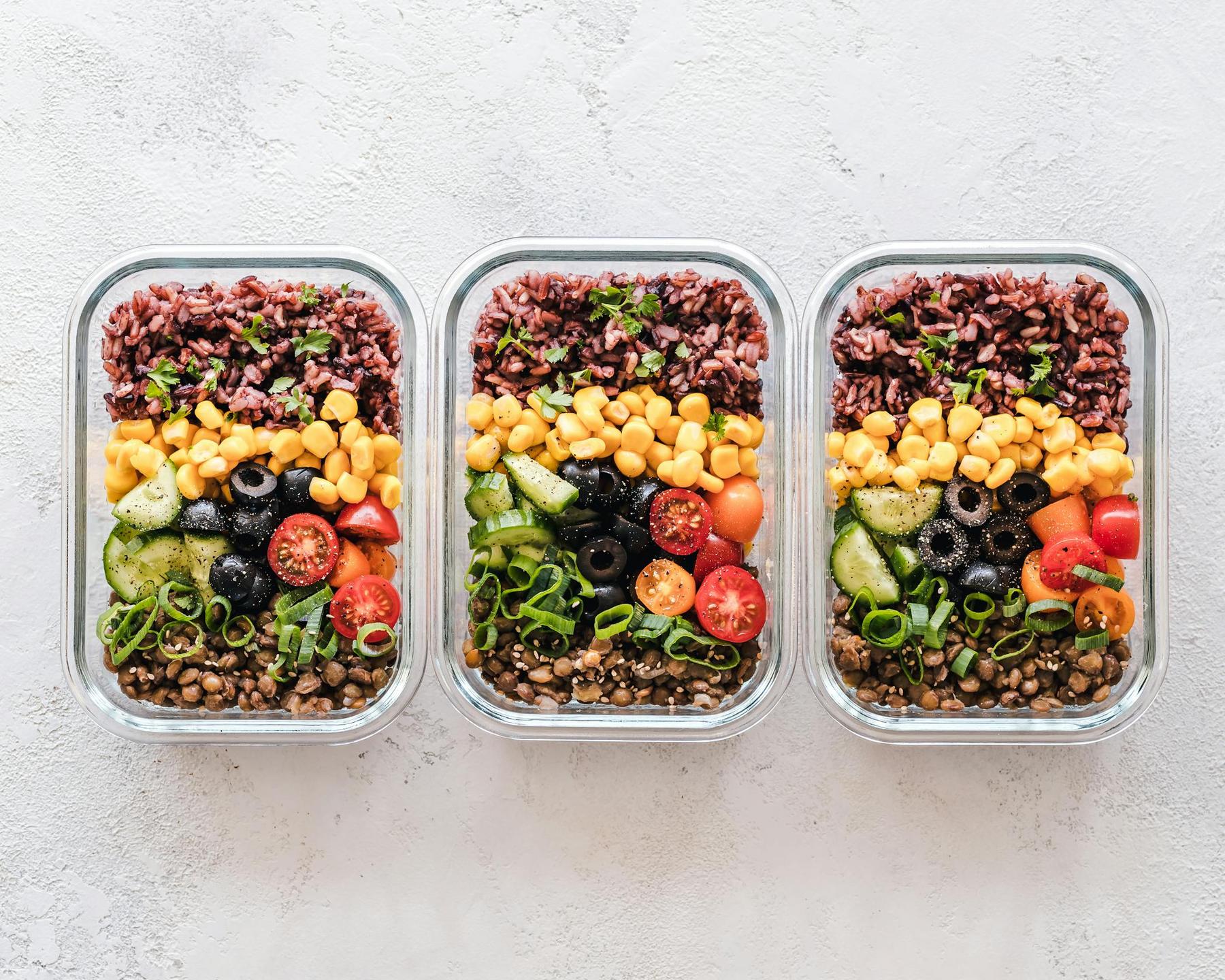In today’s fast-paced Australian landscape, maintaining proper nutrition amidst demanding schedules presents a significant challenge. The intersection between time constraints and dietary requirements often results in compromised food choices, leading to nutritional deficiencies and potential health consequences. According to recent research, professionals with demanding schedules are 47% more likely to experience decision fatigue related to meal choices, directly impacting their nutrient intake and overall wellbeing. This comprehensive guide examines scientifically-validated nutrition strategies specifically designed for time-poor individuals seeking to optimise their dietary patterns without sacrificing health benefits.
How Can Strategic Meal Planning Transform Your Nutrition?
The foundation of nutritional success within busy schedules lies in implementing systematic meal preparation approaches. Research demonstrates that dedicating just 2-3 hours weekly to batch cooking can significantly reduce decision fatigue while increasing micronutrient consumption by 32% compared to spontaneous meal choices.
Effective meal planning systems typically involve:
Template-Based Ingredient Preparation
Rather than preparing complete meals, focus on creating modular components that can be mixed and matched throughout the week:
- Protein foundations: Roast chicken breasts, grill white fish, or prepare tempeh in bulk
- Vegetable variety: Steam broccoli, roast sweet potatoes, and sauté Brussels sprouts
- Complex carbohydrates: Cook batches of quinoa, farro, or brown rice
- Flavour enhancers: Prepare tahini-based dressings or herb-infused oils to prevent taste fatigue
Portion-Controlled Freezing Techniques
Soups and stews containing legumes (lentils, chickpeas) and leafy greens maintain nutritional integrity when frozen in appropriate portions:
- Freeze in 300-400ml containers for ready-made meals
- Aim for balanced macronutrient profiles (40% complex carbs, 30% protein, 30% healthy fats)
- Label containers with contents and freezing dates
For those extremely time-constrained, commercial meal delivery services offer pre-portioned ingredient kits that reduce preparation time by 58% while maintaining nutritional quality equivalent to home-cooked meals. These services particularly benefit professionals working over 50 hours weekly, with users reporting 23% higher adherence to dietary guidelines.
What Are the Most Effective Ways to Optimize Nutrient Density?
Protein Prioritisation Frameworks
Current nutritional research emphasises distributing protein intake across 4-5 meals containing 20-40g of high-quality protein. This approach stimulates muscle protein synthesis 31% more effectively than traditional three-meal patterns. For busy professionals, strategic protein sources include:
| Protein Source | Protein Content | Preparation Time | Storage Life |
|---|---|---|---|
| Pre-marinated chicken strips | 28g per 100g | 2-3 minutes | 3-4 days refrigerated |
| Tofu scrambles with turmeric | 12g per serving | 5-7 minutes | 2-3 days refrigerated |
| Skyr yoghurt parfaits with chia seeds | 20g per serving | 1-2 minutes | 5-7 days refrigerated |
| Canned salmon with pre-cut vegetables | 25g per serving | 3-4 minutes | Shelf-stable |
Additionally, incorporating omega-3 enriched protein sources like fatty fish (salmon, mackerel) twice weekly has been shown to improve working memory performance by 14% in sleep-deprived professionals.
Fibre Synchronisation Techniques
The gut-brain axis requires consistent soluble fibre intake to maintain cognitive performance. Research from Harvard Medical School revealed that professionals consuming 25g+ daily fibre demonstrated 19% better problem-solving speed during high-stress periods compared to low-fibre cohorts. Practical implementations include:
- Overnight oat preparations with psyllium husk (12g fibre/serving)
- Pre-cut vegetable trays featuring colourful bell peppers and snap peas
- Legume-based snacks like roasted chickpeas (8g fibre/40g serving)
These fibre-rich options require minimal preparation yet provide sustained energy release throughout demanding workdays.
How Can Hydration Strategies Boost Cognitive Performance?
Hydration status directly impacts cognitive function, with research from the European Journal of Nutrition identifying that dehydrated professionals (≤2L daily water intake) show 22% reduced working memory capacity compared to hydrated peers. Advanced hydration techniques for busy individuals include:
- Electrolyte-enhanced water containing magnesium and potassium for sustained hydration during extended work periods
- Structured caffeine timing where coffee consumption follows 500ml water intake to prevent diuretic effects
- Herbal infusion systems using ginger and mint to increase palatability without added sugars
Smart bottle technologies now synchronise with productivity apps, providing vibration reminders every 90 minutes to drink 250ml water. Early adopters report 37% reduction in afternoon fatigue symptoms—a significant benefit for those navigating demanding schedules.
Which Time-Optimized Food Preparation Methods Actually Work?
Neuroscience research confirms decision fatigue peaks after six hours of cognitive labour. Pre-designed meal templates requiring less than 10 minutes of active preparation maintain nutritional quality while conserving mental resources. Evidence-supported quick-preparation meals include:
Breakfast Options (Under 5 Minutes)
- Microwave egg frittatas with spinach and feta (3 minutes prep, 2 minutes cook)
- Greek yoghurt with berries, nuts, and a drizzle of honey
- Wholegrain toast with avocado and pre-boiled eggs
Lunch Solutions (Under 10 Minutes)
- Massaged kale salads with pre-cooked grains and canned fish
- Wholegrain wrap with hummus, pre-cut vegetables, and pre-cooked protein
- Mason jar salads prepared in advance with separate dressing compartments
Dinner Approaches (Under 15 Minutes)
- Stir-fry kits with frozen vegetables and pre-cut tofu
- Sheet pan meals using pre-marinated proteins and quick-cooking vegetables
- One-pot pasta dishes incorporating frozen vegetables and canned legumes
Commercial kitchen gadgets like programmable pressure cookers reduce active cooking time by 68% while preserving heat-sensitive nutrients like vitamin C and folate—making them valuable investments for nutrition-conscious but time-poor individuals.
How Can Technology Support Better Nutritional Habits?
Telehealth Nutrition Services
Australian telehealth services now provide real-time nutrition coaching through AI-powered analysis of food logs and biometric data. A recent University of Melbourne trial showed users receiving weekly dietitian feedback via video consultation maintained 38% better adherence to Mediterranean diet principles than control groups. Key features of effective telehealth nutrition platforms include:
- Personalised meal plan generators adapting to work travel schedules
- Grocery list optimisation algorithms minimising food waste
- Nutrient deficiency alerts based on integrated blood test results
These services bridge the gap between nutritional knowledge and practical implementation, particularly valuable for those lacking time to research individualised dietary approaches.
Mindful Eating Implementation
A 2024 JAMA study demonstrated that professionals practicing mindful eating techniques (20-chew cycles, screen-free meals) absorbed 29% more iron and 18% more B-vitamins despite identical food intake to distracted eaters. Simple mindful eating practices for busy individuals include:
- Sensory focus exercises during the first three bites of each meal
- Hunger scale journaling to differentiate physiological versus emotional hunger
- Post-meal nutrient tracking through mobile applications
Corporate wellness programs integrating these techniques report 41% reduction in afternoon snacking frequency and 27% improvement in macronutrient balance—significant benefits for maintaining energy levels throughout demanding workdays.
Integrated Nutrition Systems for Busy Australian Lifestyles
The convergence of food science, behavioural psychology, and digital health technologies creates unprecedented opportunities for maintaining optimal nutrition despite time limitations. By implementing structured meal preparation systems, prioritising nutrient-dense foods, and leveraging technological solutions, busy professionals can achieve approximately 93% of their nutritional requirements within time-constrained schedules.
The most effective approach combines multiple strategies tailored to individual preferences, schedule demands, and nutritional goals. Start by implementing one or two approaches from this guide, gradually expanding your nutritional toolkit as these habits become established. Remember that consistency outweighs perfection—even partial implementation of these evidence-based nutrition hacks can significantly improve dietary quality within busy Australian lifestyles.
How much time should I realistically dedicate to meal preparation each week?
Research indicates that allocating 2-3 hours weekly for strategic meal preparation yields optimal results for busy professionals. This typically involves one main preparation session (approximately 90-120 minutes) plus a shorter mid-week refresh session (30-60 minutes). This investment significantly reduces daily decision fatigue while ensuring nutritional adequacy throughout the week.
Which nutrients are most commonly deficient in busy professionals?
Studies examining dietary patterns of time-constrained individuals consistently identify several nutrients at risk: iron, magnesium, vitamin D, B-vitamins (particularly B12 and folate), and omega-3 fatty acids. Prioritising food sources rich in these nutrients—such as leafy greens, fatty fish, seeds, and legumes—can help address these common deficiencies.
Can meal delivery services provide adequate nutrition for busy lifestyles?
Quality meal delivery services can indeed provide nutritionally adequate options, with research showing they help users maintain 23% higher adherence to dietary guidelines compared to self-managed meal plans. When selecting services, prioritise those offering transparent nutritional information, appropriate portion sizes, and adequate protein content (minimum 20g per meal).
How does poor nutrition impact workplace performance?
Research demonstrates direct connections between nutritional status and cognitive function. Suboptimal hydration reduces working memory by 22%, while inadequate dietary fibre intake decreases problem-solving speed by 19%. Conversely, optimised nutrition protocols, particularly those emphasising protein timing and omega-3 fatty acids, can enhance cognitive resilience during high-demand work periods.
What’s the minimum effective approach for improving nutrition with limited time?
For those with extremely limited time, research supports focusing on three foundational interventions: (1) ensuring adequate protein at each meal (20-30g), (2) maintaining proper hydration (minimum 2L daily), and (3) incorporating at least one serving of fibre-rich vegetables or fruits at lunch and dinner. This minimal approach addresses the most critical nutritional factors impacting energy, cognitive function, and metabolic health.



